Over the past half decade, no city outside of Berlin or London can stake a claim to being as influential in underground music than Frankfurt, and even then the two capitals may be given a run for their money. The city, more specifically the Offenbach region, is home to a whole host of now-blossomed crews, who expertly blend elements of house, techno, breaks, UKG, and everything in between, into something else entirely. Trommel sits down with Offenbach crew Traffic Records for their first interview since 2017, discussing their Offenbach countryside roots, their journey to having a Robert Johnson residency and what’s next for the label that’s always pushing things forward.
The five-man collective, composed of Bodin Stojanoski, Jacob Chenaux, Julian Chenaux, Martin Müller aka Martyné, and Patrick Klein, offer a juxtaposed position of having a little and a lot of change happen in between 2017 and now. “Mainly, we improved our mix and the aesthetic of our tracks.” Co-founder Martyné proposes, “I think it’s more professional today, but still we don’t take all of this too seriously. Perhaps this is the essence of the constant support we get for our releases.”
His assessment is starkly self-aware and feels more or less bang on the money. The crew have built up a relatively astonishing base of appreciators, as have a few of the ‘Offenbach crews’ in Pager Records, Hardworksoftdrink, and GOSU. There’s this playfulness, an aura which is contained in the tracks by Traffic that give a cheerful nudge of ‘Hey, this underground music thing isn’t so serious’ It’s an area I’m keen to discuss, with it being a prevalent factor in their success no matter who you speak to outside of the group. “I think it’s just something that develops over time.” says Patrick Klein, “You cannot aim for a certain trademark sound, we’ve all spent such a long time together with this music and due to us being friends, we feel the same sound without explicitly talking too much about it.”
Klein is well-qualified to talk about the synchronicity that the crew possess, as he’s the only member of the collective living outside of the Frankfurt area, as he resides in Berlin. “It’s pretty astonishing to see how we can totally agree on the same sound without having each other for a long time. There are a few factors which play a role in this, not only musical ones, but also when it comes to our humour or how we talk to each other.”
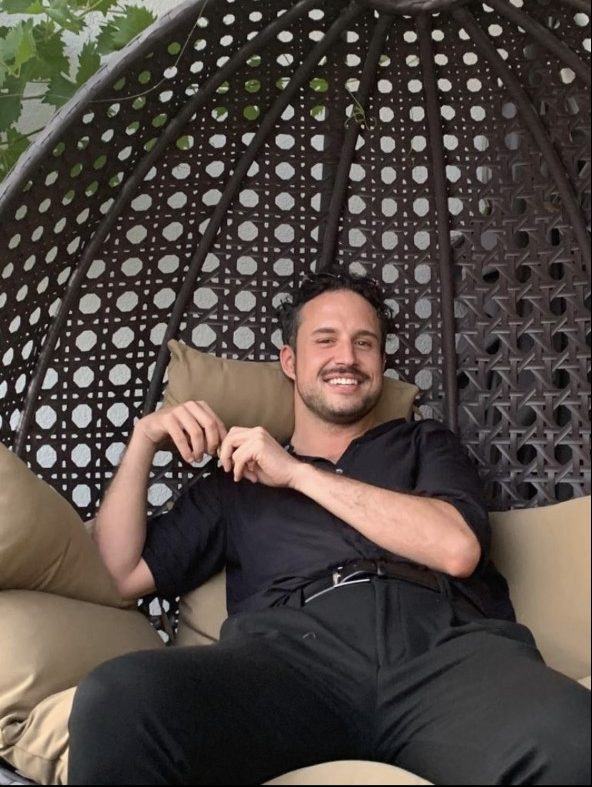
Whilst tracks like Martyné’s Tobacco and Bodin’s Gecko have this characteristic of being endearingly fun tracks, Traffic Record’s back catalogue does contain what you could call ‘serious dance floor music’. “Don’t get me wrong,” adds Martyné, “I love serious tracks, which cool down the mood on the floor.” The conversation really kicks off when I mention Etienne’s 2018 track ‘Rez’, from his Combat EP, which was released on the label. It may be one of the label’s most identifiable tracks. The drum-clap combo have that chunky Traffic sound, the bass possesses an ear worming capability of catchiness whilst also booming the dancefloor, and it’s capped off by the snarling punches of hardware.
“I heard this one and was directly overwhelmed. The specific moment I heard it first, it was so perfect, that I needed to save it for Traffic.” Martyné recalls. The track really encapsulates what the crew have managed to classify as their sound, the track’s danceability goes without saying, it could do anything to anyone on a dance floor, but whilst those same dancers are going crazy, there’s just underlying touch of unadulterated fun baked into what is a fairly serious techno track. It’s the type of explanation that could lead to someone on the outside to think that you’ve lost your mind. There’s a distinct Traffic sound but there’s no way to explain it, there’s not really one distinct feature that’s easy pinpoint but when you hear an unreleased Traffic track, you can tell it’s them.
So what’s the secret to maintaining this underlying sound whilst avoiding label-led clichés and similar patterns? “I think challenging yourself in the studio is very important and in my opinion it’s the best way to break the habit of repeating yourself. Jamming with friends and artists from different backgrounds always gives me the most inspiration.” Notes Klein, and he’s right, the contrast between the five of them ranges from stark to subtle depending not he track. “Of course we all follow a similar musical ideology. But everyone has their own brand and their own style, their own way of doing things. This means whilst they fall under the umbrella of the Traffic sound, everyone has their own thing going on.” Says Bodin.
One element of the Traffic sound which you can pin down is that there’s an alchemy of genres which are blended together. This produces two results, one, is that it gives way to distinctive music, original sounding music, and the second is that it becomes an identifiable feature of the Traffic sound. “I think it’s more challenging to move out of your comfort zone and combine genres, samples or scales that usually wouldn’t go together. This is a big part of what keeps music interesting to me.” Klein adds to our conversation. “One technique to make a decent but somehow boring track interesting is to throw in something that wouldn’t usually go with it. Not necessarily something musical, even a gunshot, a scream, or some kind of noises. If you somehow find a good way to blend it in, whether it’s rhythmically or musically, it will add another dimension to the track.“
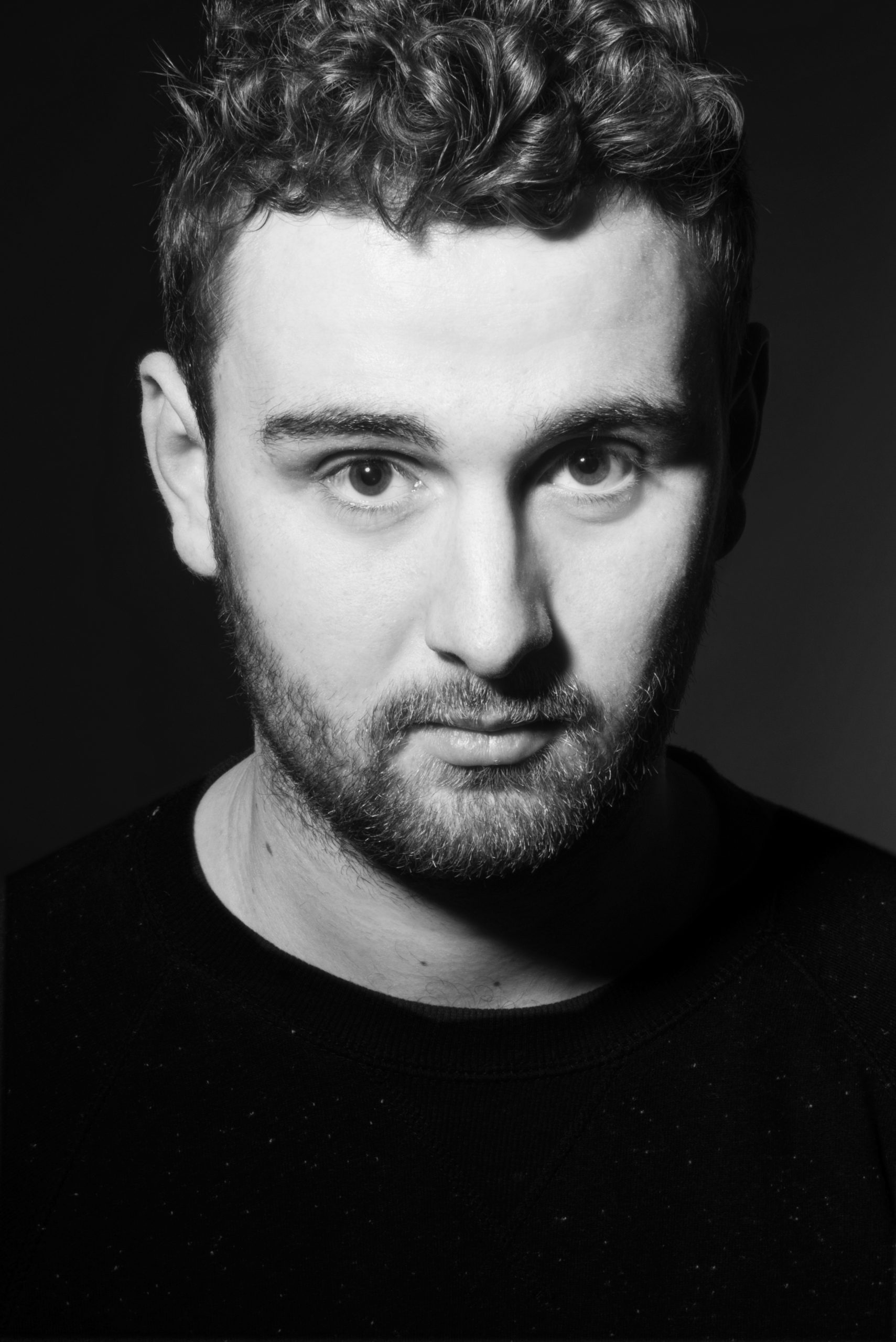
The crew are not trying to reinvent the wheel, nor are they trying to completely reinvent electronic music genres which have been around for decades. “At the end I’m not writing a symphony, I try to build, nice playable club tracks and sometimes some chilled stuff.” says Martyné. His curiosity for all areas of producing, especially the mixdown, is aided by the fact Cedric Dekowski, of Hardworksoftdrink, is his direct neighbour and has been more than happy to help the co-founder with production techniques. Producing for the Traffic co-founder is still very much trial and error, conceding he’s happy to be surrounded by so many talented musicians. For Bodin, it’s completely different, trying to avoid repeating the same production processes he’s used before. “I work on an intuitive basis, I just do it.” With Bodin finishing sixty tracks during lockdown, it’s hard to argue with his method.
There’s variety in the crew, though, which you’d expect with a melting pot of different personalities and different workflows. For Klein, it’s all about structure, the Berlin-based artist is now onto his third studio, “The most important aspect of the studio is my playing live approach. I always record jams with up to 32 channels simultaneously, that way I try to maintain the live feel, avoid spending time arranging tracks in front of a screen, while still being able to edit the main result.”
The catalogue of Traffic Records naturally contains music mostly from the crew, but EPs from scene-defining talents like Z@P, Etienne, and Hardworksoftdrink co-founder Cedric Dekowski are listed amongst the 17 releases. “I think most of our A&R happens naturally.” Klein explains of the process of recruiting artists for releases, “We don’t really listen to the stuff that is sent to us without any previous relation. All the artists we released music from have somehow crossed our path, whether it’s at a party or in regular life.“
A forthcoming fruit of this natural A&R is an EP from Slovenian producer Mayell, whom Martyné met at Hardworksoftdrink’s afterparty of their annual December 26th party with Francesco Del Garda. “He showed me tracks, that inspired me, they are how I want to proceed in my way of producing and he figured out to produce in a way, that is on point of my personal taste.” After selecting from a pool of tracks, an EP is well on it’s way, “There is huge potential on his hard drive and inside his mind.” Martyné says with a smile.
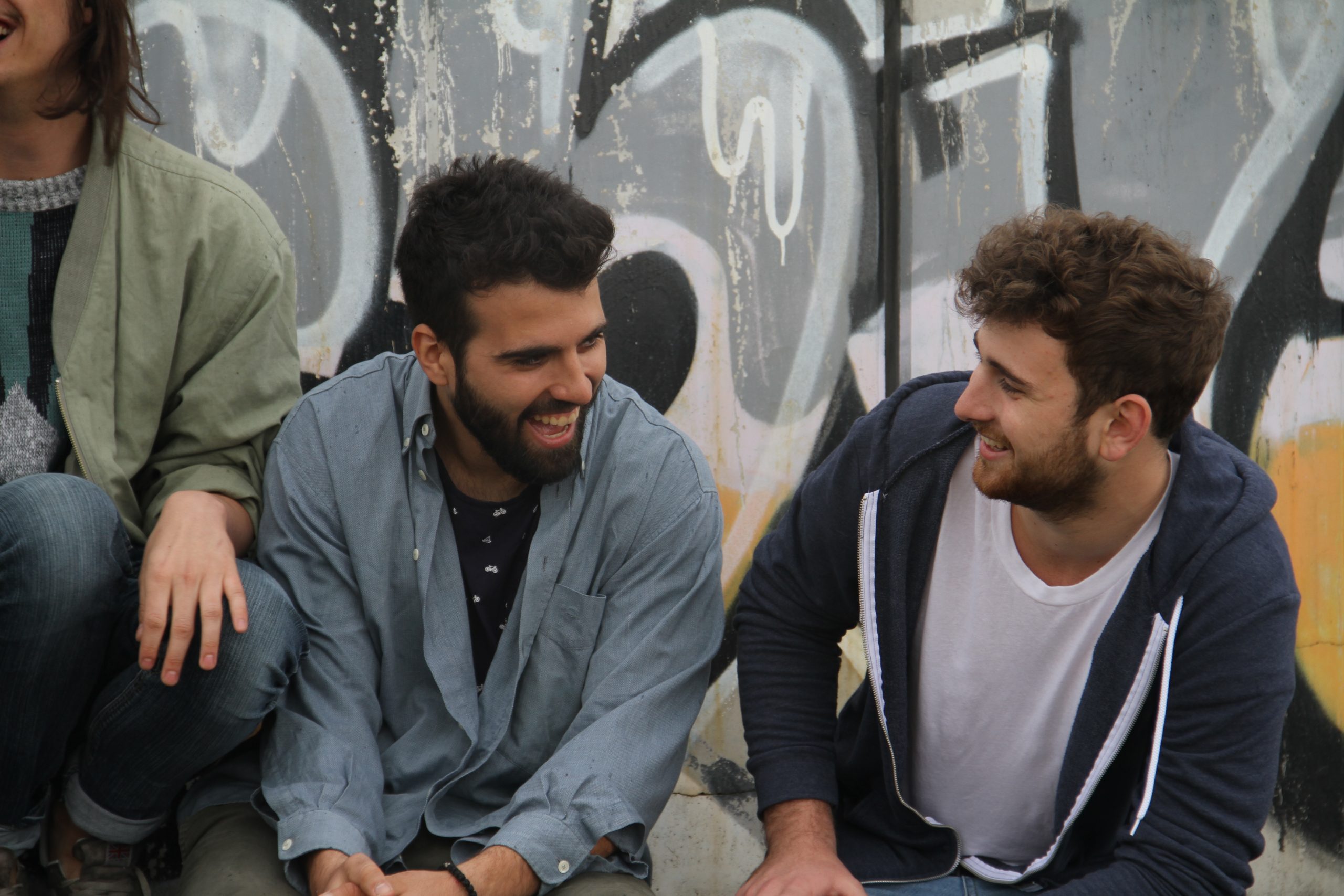
Strange sounds haven’t done much creeping out of Traffic Records in the past 18 months. Through their 8 years of releasing, they average releasing two records every year, and whilst prolonged absences aren’t unusual in their back catalogue, it’s significant enough for the collective to comment on it. “Our music is mainly dancefloor oriented so it didn’t make sense for us to put music out during the pandemic with clubs being closed. It actually meant we could focus on future releases when clubs did open up.” Explains Bodin, with Berlin-based Klein agreeing. “If you completely strip away our main domain [clubs], it didn’t really make sense for us to keep on releasing during the pandemic.”
Their synchronised approach is unsurprising considering they’ve been friends for over 15 years, and when you hear how their personalities blend together, it almost seems a given that their paths would end up crossing in the way they did. They nearly all hail from the same town in the countryside of Frankfurt, an area that Patrick describes as ‘small, rural, and rather quiet’ with Martyné and Patrick attending the same school and even took the same French class together. “I started to get into electronic music around 2005, we [Patrick, Martin, Julian] basically went out basically every weekend.” Klein recalls “At that time, we were definitely all highly influenced by the Cocoon sound.” Soon after Martyné bought his first record players and records, Patrick followed suite. “We started to listen to techno in Patrick’s Golf Country with a huge sounsydstem on board.” with Julian Chenaux’s younger brother, Jacob, joining a few years later.
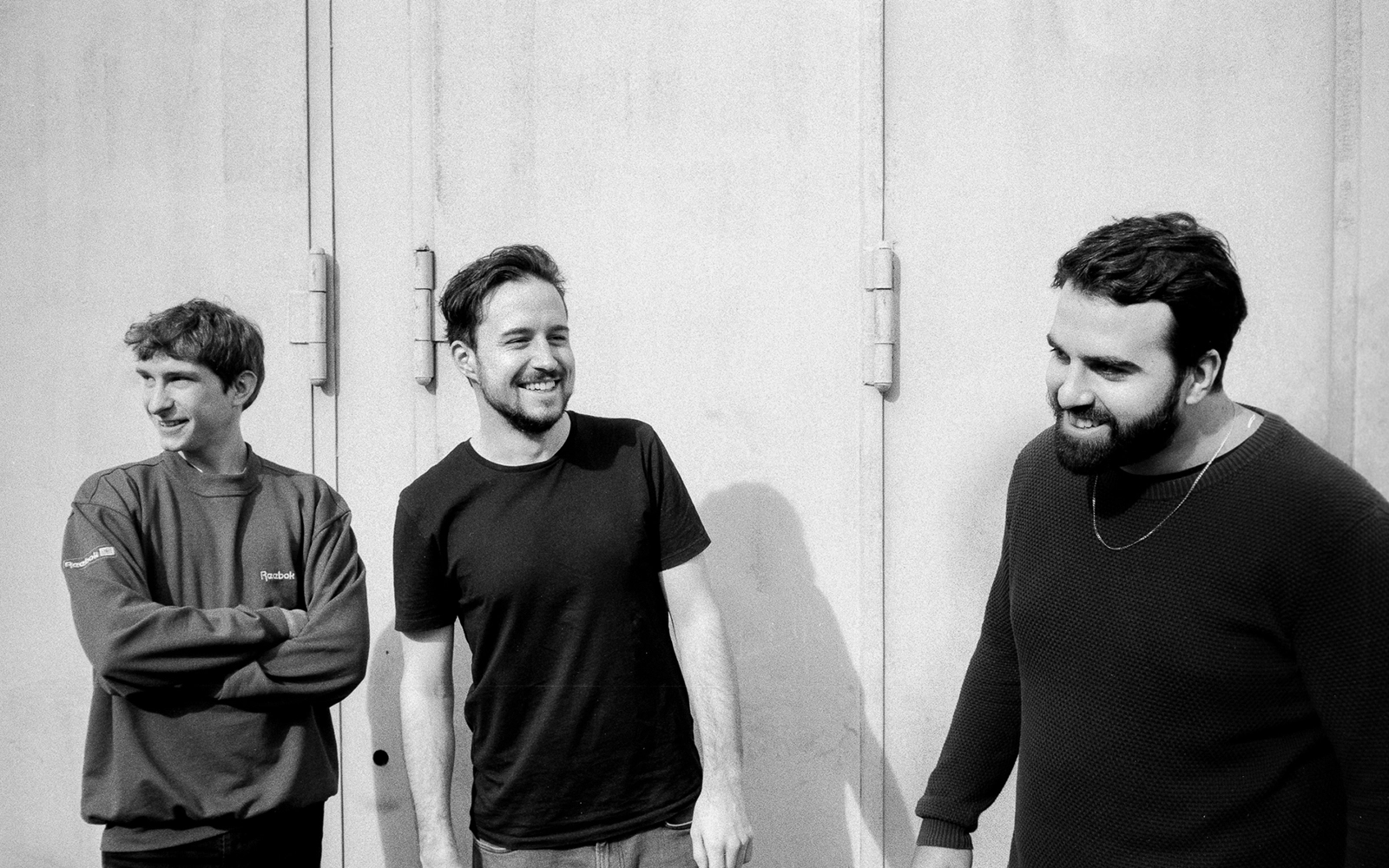
Bodin’s entry into the world of underground music came a little later, “At the age of 13 or 14, I developed a real affinity for hip-hop beats and I began to try to imitate these beats with beatboxing.” And it wasn’t just a hobby to pass the time, by the time he was 15, Bodin was taking part in beatboxing contests where he won a variety of titles several times over.
Both Martyné and Patrick recall getting to know Hardworksoftdrink co-founder Max Vaahs, whom they got to know through an old electronic music forum, discovering that Vaahs only lived a few villages away and began organising digging trips with him. “I think we all felt the need to break out of our town and spent most of our time at parties, clubs, after hours and record shops in and around Frankfurt.” Klein notes about their early small-town upbringing. “For sure our taste in music shifted over time and we all fell into the digging game, started chasing old and rare records.“
Naturally the crew, who release all their records on vinyl and have an unapologetic love affair with the format, began to grow serious connections to record stores in Frankfurt and places like Freebase Records, became a big meeting point. Martyné and Vaahs worked there, as well as Thilo Dietrich from Hardworksoftdrinkand Manuel Schatz from GOSU. Martyné would encounter a fellow record enthusiast by the name of Bodin Stojanoski, “I met all the guys when I started working at Freebase, getting to know Martin as he acted as a moderator for the weekly Freebase show. Over time Jacob came into freebase and we realised that we shared the same interests in music and quickly began to work together.” Bodin and Jacob would of course go on to DJ and produce together as Bodin & Jacob.
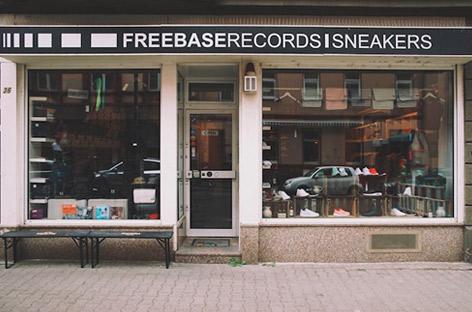 The now defunct Freebase Records, which served as a crucial melting pot for all of Frankfurt and Offenbach’s musical talent.
The now defunct Freebase Records, which served as a crucial melting pot for all of Frankfurt and Offenbach’s musical talent.
Before the lofty days of being a resident party for Frankfurt clubbing institute Robert Johnson, the crew were dipping their feet into the clubbing world in more unconventional ways. Bodin played in bars before breaking out into the Frankfurt club circuit, whilst Martyné and Klein began organising parties in the second room of a small club called ‘Gambrinus’ in Bad Homburg, which is close to Frankfurt. “It was all pretty unprofessional at that time but given the fact that I was still underaged and the three of us just craving to play in a club, it was still a remarkable experience. It was still prior to the CDJ-era so we started to play vinyl-only sets straight away. Although we surly trainwrecked from time to time these parties still gave us a pretty good foundation when it comes to DJing.”
In 2016, after a string of steady releases, Traffic Records were taken on as a resident party at the club that’d played such a vital role in their musical education and journey – Robert Johnson. “I have a pretty clear memory of standing in the Robert Johnson booth for the first time,” Klein recalls, “Touching the infamous Rane rotary mixer. Playing there has been one of the best experiences ever, and I feel the exact same way every time I have the honour to play there.“
“Robert Johnson has a very pedagogic way of introducing you to electronic music.” Martyné philosophises, “The sound system is massive and you learn how deep electronic music can go. The floor of Robert Johnson is the biggest sound reference I have in my mind when it comes to the mixdown of my tracks.” Martyné’s take has backing outside of the Traffic crew, with Melliflow co-founder Vera confessing that the soundsystem has completely transformed tracks that would otherwise sound normal. “You would have a track that sounded really deep and mellow at the store or at home, but would completely take over the club and be like this massive intense thing during the warm up. I’d be there thinking, ‘Oh my God.‘”
For those of us lucky enough to visit the Offenbach club, this reference is easy to understand, a night in the club is equivalent to a hundred experiences of most other clubs around the world. Whilst the crews of Traffic, Pager, Hardworksoftdrink, and, GOSU are all deeply talented, it’s no coincidence that Frankfurt has become a breeding ground talent with a reference point like Robert Johnson at the centre of it all.
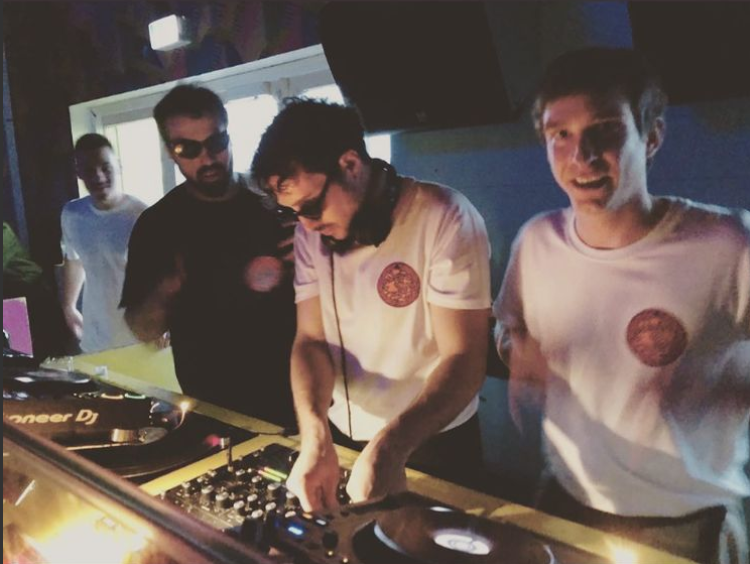
“We all spent so many hours in that club and listened to incredible music and sets, there is no bigger influence for all the [Frankfurt] groups of the last 20 years. It is the perfect concept of a club.” The sound isn’t the only thing that’s shaped the crew, as Klein points out, “It taught me a lot about how important the social aspects of a club night are. How important it is to have a strong community that is committed to this collective goal of having a great time together, and how important it is to grant everybody their freedom during a night.”
A key connection for Robert Johnson has been between the club and the HfG, Offenbach’s art and design school. “I think what stands out when it comes to Robert Johnson is that the art always comes first. For sure a club like this needs to be in a financially healthy situation but I always had the impression that no compromises were made for the sake of making more profit. It takes a lot of courage to reduce a club to its absolute minimum: A bar, a dancefloor, an amazing soundsystem. Especially in times where clubs often are small amusement parks, it’s great to see that this concept still works today.“
It’s pretty astonishing albeit not that surprising just how much the club has played a part in almost every aspect of their lives, and the would go for all the Frankfurt crew, “All my musical knowledge and almost all my friendships are based on the cornerstone of this place.” Says Bodin, “The unique sound system, which in my opinion cannot be compared anywhere else in the world, and the dance floor, combined with the people, make Robert Johnson a very special place.”
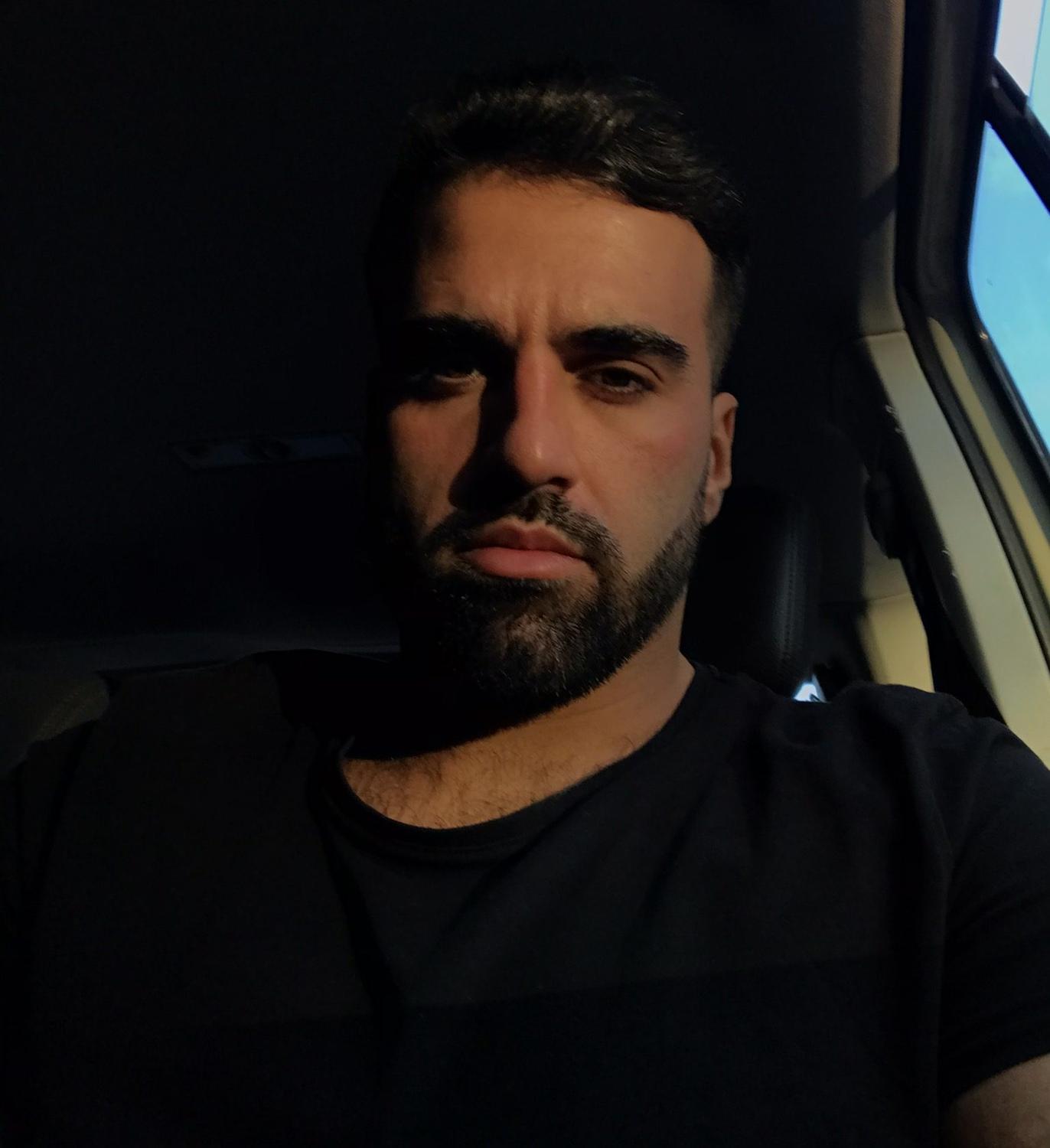
A lot’s changed in the loosely connected scene that Traffic belong to. In the year they started as a residency party, scene-leading DJs such as Nicolas Lutz, Binh, and Önur Ozer had truly opened a whole new world of music and inspired a generation down a different path. This new musical path, underpinned by digging for older, rarer, and more obscure music that had slipped through the cracks, was finding love in the minds of younger listeners. As a wider audience began to pay attention, the likes of Francesco Del Garda, and the Slow Life collective issued fresh perspectives, with crews, like Traffic, now taking inspiration from the incredibly fertile periods of music that these scene-leading DJs had dug up. The main difference, though, is that this is new music, driven by older influences, introduces a freshness to a scene which might just rely a bit too heavily on older records.
The music played by these DJs wasn’t always as eclectic, though. Minimal’s transition into the modern digger scene is well-documented at this point, but the Traffic boys represent a good timeline of this very transition from their early releases until now. “Personally my most exciting time was in 2015-2017. If I were to point out one party that influenced me the most, I would say it was the extended afterparty at Hafenstraße with Onur and Nicolas back in 2015. The venue existed for just two months, but still lasts in the mind of many people I know.” Martyné says, and Lutz is a name that resonates with Bodin, too. “Our tastes and influences have of course evolved over time, sets at Robert Johnson from the likes of Nicolas Lutz to live acts by DMX Krew have played a key role in influencing our tastes and how we do things.“
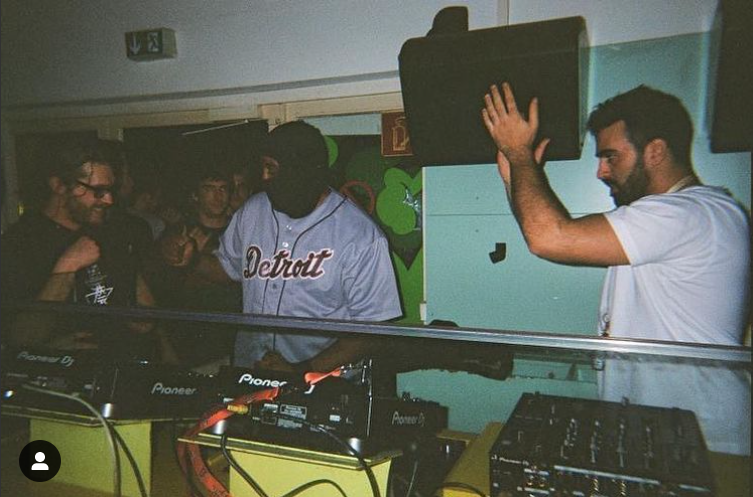
“As I said earlier, musical styles might shift over time, but what keeps us together as a collective and a label are our common experiences and adventures. Sometimes a single party or set can influence or change you as an artist.” Klein explains. “Over the years we’ve tried to invite DJs with a certain quality and the ability to influence you. We try to share that experience with everybody around us and let change happen when the time is right.“
One story in the development of Traffic Records from minimal heads to versatile diggers is the story of their A² release. A², the brainchild of the immensely talented duo of Alec Stone and Andy Panayi, who passed away in late 2020, had become a favourite of the likes of Lutz and Binh, which naturally led to some eye-watering prices on Discogs. After some exchanges on SoundCloud led to a selection of old A² records being sent to the boys in Offenbach, the UK duo released their first EP since 2004 with their ‘resurgence EP’ on Traffic in 2015. This proved to be a seminal moment for A², who received fresh love for their musical talent and began releasing records again, and was also a gateway for a lot of people discovering what the Traffic crew had to offer.
Not only is it a feel-good byproduct of the digging scene, with artists who didn’t receive apt attention or credit for their talents now being rediscovered and met with new love from younger listeners. This offers an interesting question for today’s music labels. A lot of these artists are injecting new love into old records – what if someone does the same to their records in 20 years?
“This is a hard question.” Martyné naturally concedes, “I would be happy, if someone would contacted me in 20 years and asked for some tracks. But I think we will still continue to produce tracks in the future, I don’t think we will stop this. Making music is a constant healing process for your mind.” Whilst Klein is equally nonchalant. “Making timeless music is without any doubt the ultimate goal, but busting your head about how your own legacy is perceived in the future is neither getting you anywhere nor you’ll find out before the time has come. Especially if you are referencing such legends l think we should have a more humble approach. We just try to make and publish the best music we can.“
For a collective that’s let everything they do grow so organically, a question such as ‘What’s next for Traffic Records?’ is unlikely to prompt a response of musical world domination, or even, pushing themselves forward to sell themselves any more than they really need to. “We’ll keep going, just like we have done until now.” Is Martyné’s response to the big question, “We just want to release nice records and always try to get cool, innovative external artists, who we also like personally. Sometimes there is no need for a big innovation, as long as you people enjoy what you do and have a good time.”
Musical world domination may not completely be off the cards, though. With aforementioned EP coming up from Mayell, an EP from Patrick Klein, and a collaborative EP from Julian Chenaux, Felix Kluge, and, Robin Stern as well as LPs from both Martyné and Bodin. When closing off our conversation, Bodin may have said it most in-line with the crew’s philosophy, “All I can say is that we are back and will have an incredibly strong musical output. That’s all there is to it.“
More info on Traffic Records
Facebook | SoundCloud | Discogs



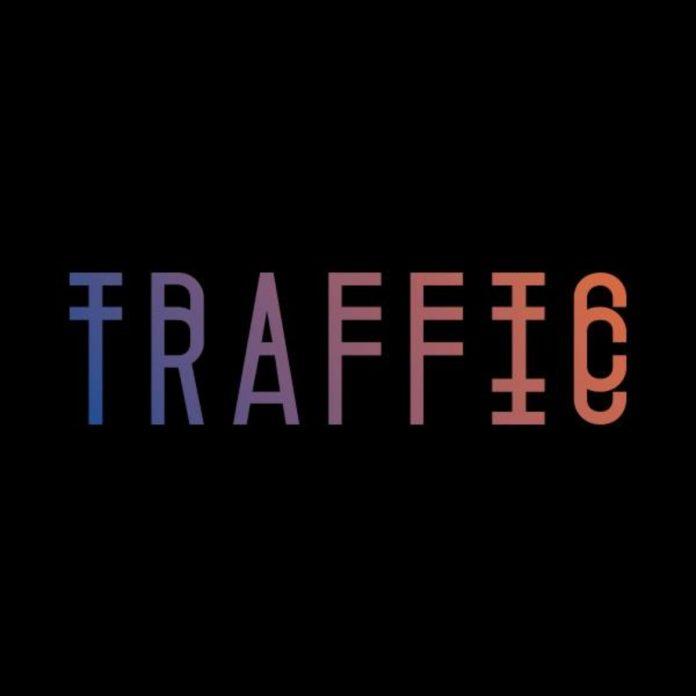

![Premiere: B2 – Markus Sommer – Active Feel [PAGER010]](https://trommelmusic.com/wp-content/uploads/2020/05/200420_Pager_010_Post1-218x150.png)
![Review: Martyné – TP Project EP [TRAFFIC016]](https://trommelmusic.com/wp-content/uploads/2020/01/a8d2a5278616a3170e4f1c2223fb3c34-218x150.png)
![Review: Bodin – Revox LP [Traffic014]](https://trommelmusic.com/wp-content/uploads/2018/12/lotm-tr-group-218x150.jpg)

![Premiere: A2 – mrelss – Season of Reason [AMAM044]](https://trommelmusic.com/wp-content/uploads/2026/02/label_side_A-Alessio-Mereu-324x235.jpg)
![Premiere: 2 – Santon – Only a Test (Alain de Saracho Remix) [SDR012]](https://trommelmusic.com/wp-content/uploads/2026/02/Santon-Only-a-Test-EP-Artwork-Alain-de-Saracho-100x70.png)
![Free Download: Zombies in Miami – What Ya Doing [TFD128]](https://trommelmusic.com/wp-content/uploads/2026/02/photo_2026-02-12-10.38.24-e1770892750337-100x70.jpeg)
![Premiere: 1 – DAT (Italy) – Not My Plan [SENS001]](https://trommelmusic.com/wp-content/uploads/2026/02/IMG_9750-Sensazione-Stupenda-100x70.png)
![Premiere: B1 – Kolhida – Break And Escape (Cezar Lazãr Remix) [TTM003]](https://trommelmusic.com/wp-content/uploads/2026/02/IMG_2883-Aleksandr-Gocheleyshvili-100x70.png)
![Premiere: A1 – JJ Fortune – Design [LNS10]](https://trommelmusic.com/wp-content/uploads/2026/02/1188556-100x70.jpg)
![Premiere: A1 – Alexander Skancke – Saga Of Subvision [QRK015]](https://trommelmusic.com/wp-content/uploads/2026/02/photo_2026-02-03_17-31-24-100x70.jpg)

![Premiere: A1 – Light Blue File – JUNIOR [RCR002]](https://trommelmusic.com/wp-content/uploads/2026/02/RCR.002.FRONT_.LABEL-Will-Gilliland-100x70.png)
![Premiere: A2 – Lisovskyi – Just One Good Whiff [FIB004]](https://trommelmusic.com/wp-content/uploads/2026/02/B-100x70.png)